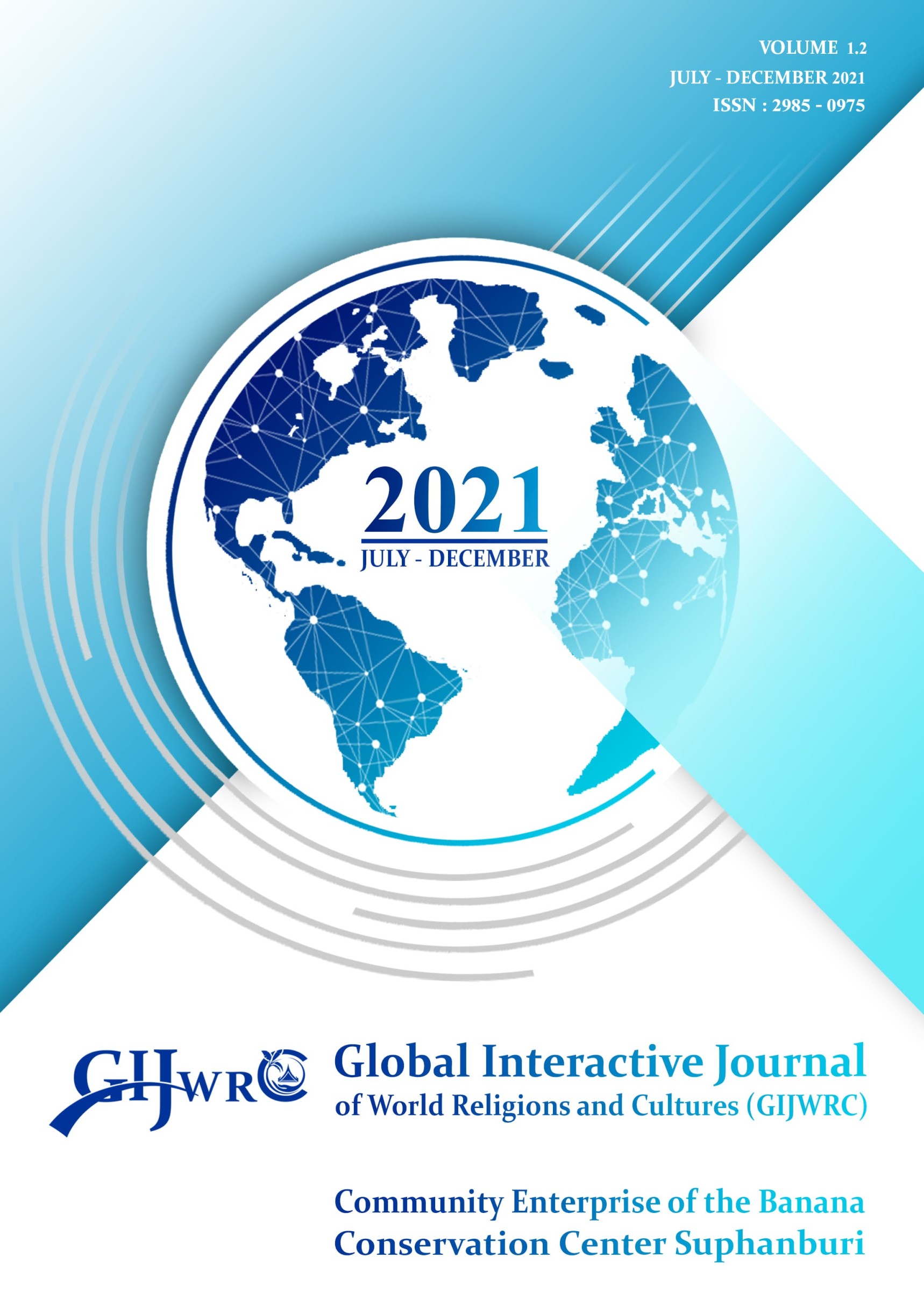THE GIVING HELPING CONCEPT OF BUDDHIST PHILOSOPHY
Main Article Content
Abstract
The Buddhist concepts offers indiscrimination to solve the problem of selfishness through building mental equality. He called it “compromisation” a process of reducing our own needs and that of the others to the level of the mutual agreeableness. This is through enacting regulations with the aim of human development rather than mental coercion. As a result, it leads to helping others without greed, hatred, and delusion or unwholesome roots (DN.III.275). Consequently, helps in Buddhist philosophy is to develop through three development perspectives, 1) perception: it is possible to help under dogmas such as laws, disciplines, mores and common practices coded as the cornerstone one must not infringe without prior common agreement and consensus. 2) consciousness: helps which is ministration emphasizing righteousness in accordance with Dhamma and not for oneself and anyone else. 3) wisdom: helps under prudence which are not just only supporting Dhamma or promoting righteousness but also enabling the persons under assistance to achieve self-development through self-reliance rather than leaving them forever awaiting helps from other people.
Article Details
References
Mahachulalongkornrajavidyalaya University. 1996. The Thai Tipitaka version of Mahachulalongkornrajavidyalaya University. Bangkok: Mahachulalongkornrajavidyalaya University Press.
Mahamakutrajwittayalaya University, 1984. The Aṭṭhakathā (Commentary) Suttantapitaka. Bangkok: Mahamakutrajwittayalaya University Press.
Mahamakutrajwittayalaya University. 2006. Maṅgalatthadīpanī (trans.) Vol.2. 12th ed. Bangkok: Mahamakutrajwittayalaya University Press.
Phra Buddhakosajaraya. 2005. Visuddhimagga Part 3 Section 1. Translated by the Textbook Committee of Mahamakutrajwittayalaya University. 10th ed. Bangkok: Mahamakutrajwittayalaya University Press.
Jessada Thongroongroj. 2004. Dictionary of Philosophy: English-Thai. Bangkok: Bo Daeng.
Phra Brahmagunabhorn (P.A. Payutto). 2007. Sustainable Development. 6th ed. Bangkok: Saha Dhammika.
Surin Intharat. 2008. “Gender Fairness in the Public Law Perspectives”. Law Journal. Year 3 Vol.1, pp. 35-38.
John Rawls. 1999. A Theory of Justice. USA: Harvard University Press. Immanuel Kant. 1985. Foundations of the Metaphysics of Morals, Tr. By Lewis White Beck. New York: Macmillan Publishing Company.
Garrett Hardin. 2008. “Lifeboat Ethics: The Case Against Helping the Poor”. in Philosophy and Contemporary Issues, ed. by John R.Burr and Milton Goldinger. Ninth Edition. New Delhi: Private Limited.
Charles M. Young. 2006. “Aristotle’s Justice”. in The Blackwell Guide to Aristotle’s Nicomachean Ethics. edit by Richard Kraut. UK: Blackwell Publishing Ltd.
J. S. Mill. 2006. “On the Connection between Justice and Utility”. in The Blackwell Guide to Mill’s Utilitarianism. edited by HENRY R. WEST. UK: Blackwell Publishing Ltd.
Peter Singer. 2008. “Insider and Outsiders”. in Philosophy and Contemporary Issues. ed. by John R.Burr and Milton Goldinger, Ninth Edition. New Delhi: Private Limited.
The Thai Action Committee for Democracy in Burma (TACDB) http://www.tacdbburmese.org/web/index.php?option=com_content&view=article&id=61:2010-11-16-05-48-43&catid=36:2010-10-21-08-06-37&Itemid=58, (20 June 2015).
Michael Walzer, Spheres of Justice (Summary), (online) http://www.the-philosophy.com/spheres-justice-walzer-democracy (22 may 015).
Matichon(online)http://www.matichon.co.th/news_detail.phpnewsid=14320105 90 (May 19, 2015).


